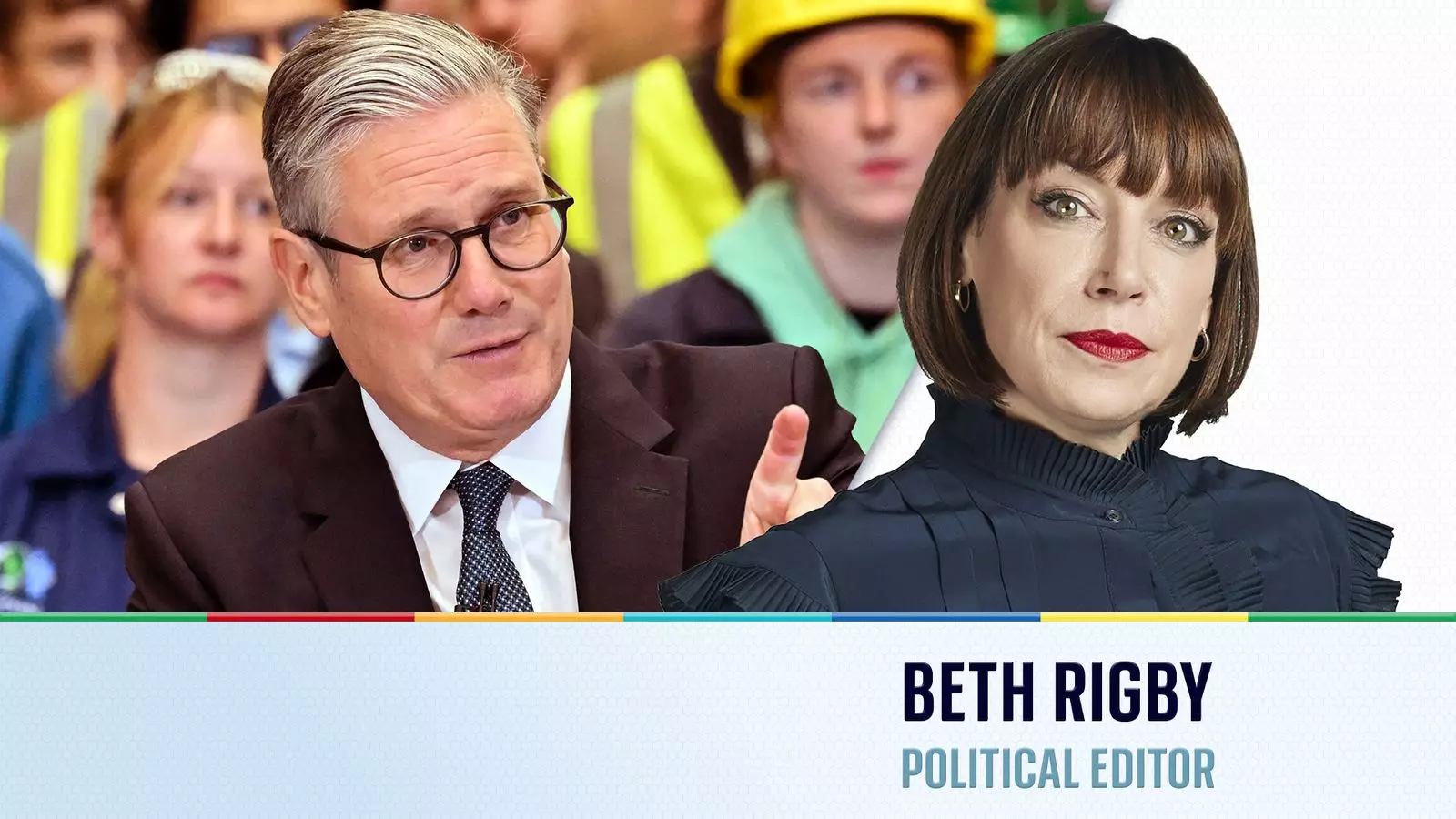It is no small feat to shift the populace’s mindset from welfare to warfare, yet that is precisely what Labour leader Sir Keir Starmer aims to achieve. Standing in the shadow of Clement Attlee, the prominent architect of the British welfare state, Starmer has chosen a controversial path: presenting himself as the Prime Minister who not only acknowledges the threats facing the UK but also insists on prioritizing military readiness. Launching his government’s Strategic Defence Review in Glasgow, Starmer’s message is unmistakably clear: the United Kingdom must prepare to confront an unprecedented level of threat akin to the Cold War era. However, while his rhetoric echoes notions of vigilance and preparedness, the reality reveals a tangled web of difficult choices and unsteady commitments that haunt his claims of leadership.
The Battlefield of National Security
Starmer’s proclamation of a “wartime footing” for Britain sends a shiver down the spine of those who remember the traumas of past conflicts. On one hand, his emphasis on “war-fighting readiness” creates a narrative that paints an image of a robust and prepared nation. Yet, war is not merely dressed in grand rhetoric; it demands resources, funding, and unyielding commitment to national security. In this regard, Starmer’s failure to address the pressing issue of meeting the 3% GDP spending commitment on defense reveals a significant flaw in his strategy. His equivocation—claiming this spend hinges on “economic and fiscal conditions,” while simultaneously prioritizing national security—undermines his credibility.
Sticking Plasters on a Gaping Wound
Starmer’s infamous promise to eschew “sticking plaster politics” finds itself paradoxically juxtaposed against his current administration’s hesitance to make hard decisions. The echoes of discontent from local elections have prompted reactions far too soft for a leader aiming to enforce a warfare state. The recent discussions surrounding potential reversals in cuts to pensioners’ winter fuel allowances and the reconsideration of the controversial two-child cap on benefits reflect a government still mired in the politics of appeasement rather than decisive action. Starmer’s strategic decisions seem to waver under the weight of public sentiment. Concerns about maintaining a welfare state amid military aspirations beg the question: Is he stringing together temporary fixes instead of delivering robust long-term solutions?
Conundrums of Leadership and Prioritization
As the discourse around funding intensifies, one can’t help but question the decisions Starmer is actually prepared to take. Can he effectively balance military readiness with the expectations of his party and the electorate? The dilemma is palpable. Allocating resources towards defense while simultaneously reversing austerity measures demands significant political finesse and uncompromising resolve. Leadership, especially in the face of threats, often involves making the tough calls that voters may not initially appreciate. However, Starmer seems caught between the desire for a powerful military narrative and the political necessity to maintain welfare programs that support the most vulnerable citizens.
The Weight of Expectations
In a world where global tensions rise and the specter of conflict looms ever closer, Starmer stands at a critical juncture. Gathering funds to meet an ambitious target of an additional £13 billion for defense spending feels monumental, especially when existing budgets are already facing scrutiny and cuts. His reticence to delve into the specifics of potential budgetary reallocations speaks volumes about a leadership that may lack the confidence or the political capital to back its lofty ideals with real action. If Starmer genuinely perceives a clear and present danger, why is his administration so unprepared to provide straightforward solutions?
While the nation’s focus shifts toward the potential of a “warfare-ready state,” the political landscape remains riddled with uncertainty and half-measures. Sir Keir Starmer must confront not only the emerging threats facing the UK but also the reality of his governance—one that must align with the social contract empowering the state to protect citizens. In a moment of crisis, a leader must choose a path—not just define an ethos. The weight of history rests squarely on Starmer’s shoulders as he navigates the treacherous waters of defining a UK that stands prepared for war while ensuring its people are cared for amidst growing fears and demands for accountability.

Leave a Reply